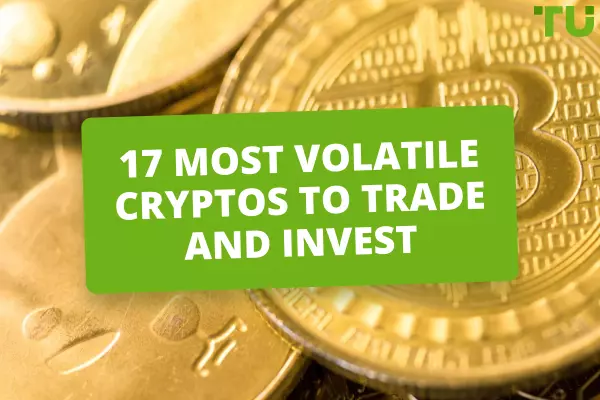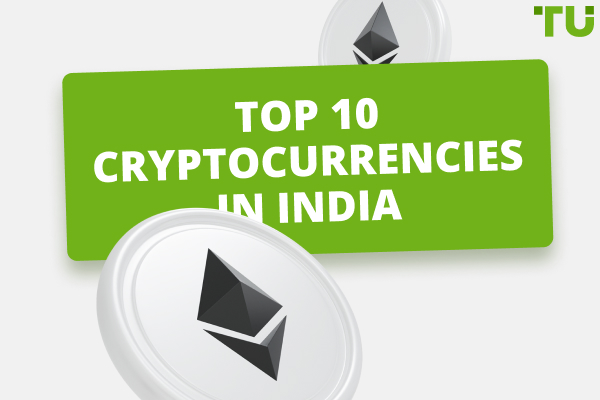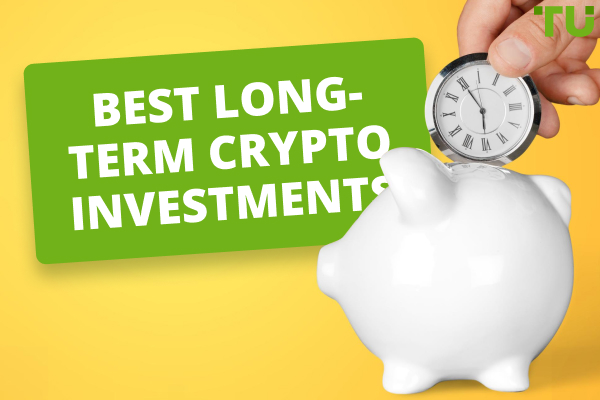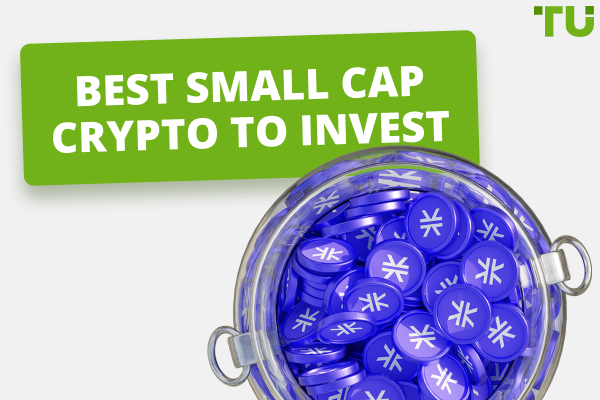How To Check If Crypto Exchange Is Safe And Legit?
To ensure the reliability of an exchange, check: regulation, security measures, reputation, trading volume and liquidity, KYC/AML compliance, quality of support service.
The first question that arises in the minds of users who have taken up the search for a crypto exchange is: "How to determine that it is safe and legal?". Unfortunately, now in the vastness of the web you can come across a lot of fraudulent companies that shamelessly divorce users for money, pretending to be reliable and honest crypto exchanges with vast experience behind them.
In this article, TU experts will talk about the points that indicate the safety of the platform, as well as share a list of useful resources for checking exchanges and a list of "red flags" for identifying scam projects.
To make sure that a crypto exchange is legitimate and safe, check whether it has a license, ask what security measures and standards it uses, learn more about the team, assess the promptness and professionalism of the support team, and don't forget to analyze reviews. The main signs of a scam project are: "guaranteed" high profitability, inducement to make a decision "here and now", problems with licenses, lack of information about the company and its services.
-
Why is it important to cooperate with trusted exchanges?
If you want to not only save but also increase your start-up capital, cooperate exclusively with proven platforms that have already earned trust among users. As a rule, such exchanges are backed by a team of professionals who will help you minimize mistakes and protect you from financial losses.
-
What if I got scammed on crypto?
If you have already become a victim of fraud, take the following actions: immediately stop any further transactions, document all details of the fraud (collect screenshots of correspondence, transaction IDs, wallet addresses, etc.), contact law enforcement agencies and local regulatory organizations to report the incident, consult a lawyer and try to find out potential options for resolving the situation, write a review about the exchange. The last step will help protect other users from making mistakes.
-
How not to get scammed in crypto?
In order to avoid being deceived, carefully double-check information. Even if an exchange claims that its activities are regulated by authoritative bodies and shows you licenses, this is no reason to take its word for it - it is better to visit the website of the supervisory body to be sure of the project's claims. Also, avoid companies with unrealistic promises and do not follow links of unknown origin to avoid becoming a victim of phishing.
-
How do I know if crypto exchange is safe?
The following factors indicate the reliability of the exchange: its license, fair and transparent terms of cooperation without hidden commissions and additional payments, 24-hour multi-lingual support, clear navigation on the platform. Also pay attention to reviews about the project, and check if it is not a figurehead of scandals or legal proceedings. One more point - an honest exchange will not hide the names of the creators, internal documentation, information about the date of launch, daily trading volume, etc.
Is crypto trading legal?
The rapid growth in the popularity of digital assets has been marked by the tightening of financial regulation and supervision of the crypto market. Below we have described how cryptocurrencies are supervised in different countries and what laws local authorities plan to introduce in the near future.
USA
In the US, regulation of cryptocurrencies is primarily overseen by various federal agencies such as the Securities and Exchange Commission (SEC) and the Commodity Futures Trading Commission (CFTC).
The SEC focuses on securities laws and regulates initial coin offerings (ICOs) and security token offerings (STOs). The CFTC, for its part, treats cryptocurrency more loyally and describes it as a commodity, allowing public derivatives trading. And the U.S. Financial Crimes Enforcement Network (FinCEN) currently does not consider cryptocurrency a legal tender, but considers cryptocurrency exchanges as a way to transfer money.
UK
Under the legislation, cryptocurrencies are not considered legal tender in the UK and exchanges must obtain approval from the local supervisory authority (FCA) and comply with AML/CFT reporting obligations. These rules came into effect after Brexit in 2020.
Europe
The regulatory approach to cryptocurrency trading in Europe varies by member state, but in general cryptocurrencies are considered legal in the EU.
On April 20, 2023, the European Parliament took a historic decision for the crypto asset market by approving new common supervisory and consumer protection rules for cryptocurrencies - Markets in Crypto assets (MiCA).
The main aspects and objectives of MiCA are:
-
Establishing common rules for the market for cryptocurrency assets across all EU member states;
-
licensing and regulation of service providers (exchanges, payment systems, etc.);
-
protection of investors and consumers;
-
transparency of the crypto market and stimulation of the industry development within the established standards and rules.
India
India has not yet come to uniform regulation. Cryptocurrencies and exchanges in this country are not officially legal. For example, in December 2023, the Financial Intelligence Unit of India (FIU) issued a warning to Binance, HTX, Kraken, Gate.io KuCoin, Bitstamp, MEXC Global, Bittrex and Bitfinex about illegal activities on the territory of the country, and already in January moved from words to actions and blocked the sites of the largest crypto platforms.
Also on April 1, 2022, the "Finance Law" came into force, which addressed the topic of taxation of digital assets. From now on, any transactions in cryptocurrencies and NFTs are subject to a 30% tax and a 1% levy under TDS.
Australia
Digital assets and exchanges are perfectly legal in Australia. The country has a loyal policy towards cryptocurrencies in principle. Digital assets here are treated as personal property and are therefore subject to capital gains tax (CGT). Since 2018, the Australian Transaction Reporting and Analysis Center (AUSTRAC) has been the main regulator in the field of anti-money laundering and financing of illegal activities. It makes cryptocurrency exchanges subject to mandatory registration and reporting. By obtaining an AUSTRAC license, crypto exchanges demonstrate their commitment to regulatory standards and customer protection.
Best crypto exchanges in 2024
How to check crypto exchange legality?
To verify the legitimacy and legal status of a cryptocurrency exchange, follow the step-by-step instructions below. Note that the verification process may vary depending on your location and the jurisdiction in which the cryptocurrency exchange is registered. In this article, we will use an example based on US regulatory rules.
Identify the regulator
Determine which regulatory body oversees crypto exchanges in your jurisdiction. In the US, agencies such as the Financial Crimes Enforcement Network (FinCEN), the Securities and Exchange Commission (SEC), or the Commodity Futures Trading Commission (CFTC) perform this function.
Visit the website of the regulatory authority
Go to the official website of the regulator. For example, if you are in the United States, visit the website of FinCEN (FinCEN.gov), the SEC (SEC.gov), or the CFTC (CFTC.gov).

Website FinCEN

Website SEC

Website CFTC
Search for registered persons
Go to the section of the website that allows you to search for a company in the regulator's database. Enter the official name of the exchange or its registration number in the search bar.

Website SEC
Check the list of registered exchanges
Go to the list of registered or licensed exchanges provided on the public law institution's website. This list should include companies that are allowed to operate legally within the jurisdiction.
Check the regulatory status
Find the name of the cryptocurrency exchange you are interested in cooperating with in the list of registered entities. Check its regulatory status, which may include details about its license, registration number, and compliance status.
Conduct additional inspections and research
Read the details. Click on an exchange's name to learn more about it: find out its registration date, business address, and whether the platform is involved in litigation or has had its license revoked by the regulator.
Contact the regulator. If you have questions or concerns about the legal status of an exchange, contact the regulator directly for further clarification.
If necessary, repeat these steps for different jurisdictions
If the selected cryptocurrency exchange operates in several jurisdictions, then conduct a similar check in the registries of other regulators to make sure that the project complies with the requirements in all regions.
Some crypto exchanges place links to the registries of supervisory authorities directly on their resources, offering users to go to them and independently verify the reliability of the project. Therefore, do not forget to always check the authenticity of the regulator's website to avoid fraud or phishing attempts.
Having an exchange license guarantees that you are using a reputable platform that strictly complies with the laws and cares about the protection of its clients.
How to check crypto exchange safety?
At first glance, assessing the security level of a cryptocurrency exchange seems to be a difficult task. However, there are several criteria to pay attention to which you can make sure that the chosen platform is reliable (or unreliable): domain name, security measures, reviews, etc.
-
Domain name. It is not superfluous to check the age of the domain name and verify it with the dates specified on the project's website. For example, if a crypto exchange claims that it has been serving depositors since 2017, but its website was created only a couple of months ago and there is no mention of the rebranding of the project or its past resources, this is a reason to doubt its honesty.
-
Security measures. Ask what protocols and standards the cryptocurrency platform uses, how and what personal data it saves. Does the site have two-factor authentication (2FA), encryption protocols, etc.
-
Transparency and reputation. Find information about the project team, including links to their social networks, familiarize yourself with the roadmap, and search the web for information on whether the exchange is involved in scandals or litigation. It is also very important that all data on the terms of cooperation are freely available.
-
Trading volume and liquidity. Ask how many assets are bought and sold on the exchange during the day. High trading volume indicates that the exchange is popular among traders and investors.
-
Reviews. A serious indicator of the reliability of the exchange is a large percentage of positive reviews. Therefore, before starting a cooperation, carefully read reviews on independent forums. Other people's comments will help you understand how much the site's offers correspond to their validity, and what problems you may encounter in the process of work.
-
Regulation. Make sure the crypto exchange is regulated in the jurisdictions in which it provides services. Check the authenticity of the license carefully.
-
Support services. A reliable exchange is always ready to come to the aid of its customers. Phone numbers, branch addresses and emails should be posted on the website. Prompt customer support can be crucial in resolving issues such as account blocking, transaction delays, and more.
Useful resources to check crypto exchange
-
CoinMarketCap. One of the most popular crypto sites in the world for tracking the prices of digital assets. Here you can see the trading volume of each exchange, see the list of supported coins, read the rating of cryptocurrencies and exchanges, analyze historical data of assets, etc. CoinMarketCap provides links to the official websites of the exchanges, where you can find more information about their trading commissions, security measures and supported functionality. CoinMarketCap also regularly publishes interesting articles and analytics.
-
CoinGecko: The platform provides fundamental analysis of the crypto market. With its help, you can track cryptocurrency rates ranked by market capitalization, read the rating of the best and worst digital assets, find detailed statistics of each exchange, including daily trading volume, and useful thematic materials (podcasts, news, reports, research results, educational videos), etc.
-
Traders Union: This is a platform that focuses on providing real user reviews and expert reviews of cryptocurrency exchanges. In addition to useful articles for beginners and professionals, you will find digital asset price forecasts, comparative analyses of projects, guides and more. Traders Union uses a rating system to evaluate exchanges based on parameters such as security, customer support, trading commissions, ease of use, etc.

CoinMarketCap

CoinGecko

Traders Union
Red Flags: 5 indicators of a crypto scam
Unfortunately, not all crypto exchanges are used to playing by the rules. On the vastness of the internet, you can meet scammers who aim to deceive as many users as possible by misappropriating their money for themselves. How to identify scammers? Below are 5 "red flags" by which you can determine that you are engaging with scammers.
-
Unrealistic promises. Beware of projects that promise you guaranteed or unusually high profits. Such claims are often characteristic of Ponzi schemes or high-yield investment programs in which payments to previous investors are made with the money of new investors.
-
Lack of information. If an exchange hides important information such as the date of creation, the names of the founders, and the location of the main office, it's a bad sign. Legitimate projects usually have clear goals, an active development team and publicly available documentation that confirms their legality.
-
Haste. If an exchange is encouraging you to make a decision as soon as possible without giving you time to think long and hard, this is an indication that its history is not all that transparent and it doesn't want you to do additional due diligence. Scammers often use high-pressure sales tactics to create a sense of urgency and avoid additional questions from investors.
-
Strange references. Be careful not to click on links that don't inspire trust. Even if the exchange claims there's a bonus or some special gift waiting for you on the other side. It could be a phishing scam. One click on an unverified link is enough to redirect users to a site where their personal credentials will be instantly stolen.
-
Lack of a license. Some scam projects assign themselves to someone else's certificates or forge documents, so it is recommended to double-check any information. For example, if an exchange claims that its activities are regulated by the US Securities and Exchange Commission (SEC), don't be lazy and go to the website of the supervisory body to see for yourself.


What if I got scammed on crypto?
If you have already been victimized by a scammer, take the following actions:
-
Keep your composure. Despite the stress, try to keep a calm and cool mind. Avoid making impulsive decisions that could exacerbate the situation.
-
Gather evidence. Often scammers promptly delete correspondence with victims, so take screenshots of emails, chats and transactions as soon as possible. Any evidence is important.
-
Contact the authorities. Report the fraud to financial regulators and law enforcement. Provide them with detailed information that will help with the investigation.
-
Share your experience with others. Leave reviews about the exchange on independent forums so that other users don't fall for its tricks.
-
Seek advice. Consult with a lawyer who specializes in financial fraud so they can explain your rights and legal options for seeking help in detail.
-
Monitor your accounts. Closely monitor your bank accounts, cryptocurrency wallets, and other financial accounts for any suspicious activity (it is recommended that you change your passwords) . Report any unauthorized transactions immediately.
Expert Opinion
In an era when digital assets are becoming more and more popular every year, it is very important to monitor the legitimacy and security of platforms offering users to discover the rapidly developing crypto market. Investors should be cautious and carefully double-check the information about the chosen exchange before entrusting it with their money. First of all, they should find out which public-legal institutions supervise the project's activities. Also, special attention should be paid to security measures: analyze the steps the exchange takes to protect users' funds and personal information, including encryption standards, multi-factor authentication, etc. Assess the exchange's trading volume and find out if it supports popular cryptocurrencies as well as new tokens, as this reflects its commitment to staying relevant in the dynamic cryptocurrency market.
I also advise you to analyze the reviews of other users, as it is honest reviews that are the main indicator of the reliability of the project. Pay attention to any history of security and/or regulatory violations, as well as study customer complaints. By conducting due diligence before you start working, you minimize the risk of running into scammers.
Conclusion
The first thing you should pay attention to when choosing a crypto exchange is how it cares about the safety of its clients and what supervisory bodies control its work. We hope that the recommendations outlined in this material will help you effectively assess the credibility and reliability of the platform.
Glossary for novice traders
-
1
Broker
A broker is a legal entity or individual that performs as an intermediary when making trades in the financial markets. Private investors cannot trade without a broker, since only brokers can execute trades on the exchanges.
-
2
Cryptocurrency
Cryptocurrency is a type of digital or virtual currency that relies on cryptography for security. Unlike traditional currencies issued by governments (fiat currencies), cryptocurrencies operate on decentralized networks, typically based on blockchain technology.
-
3
Trading
Trading involves the act of buying and selling financial assets like stocks, currencies, or commodities with the intention of profiting from market price fluctuations. Traders employ various strategies, analysis techniques, and risk management practices to make informed decisions and optimize their chances of success in the financial markets.
-
4
CFTC
The CFTC protects the public from fraud, manipulation, and abusive practices related to the sale of commodity and financial futures and options, and to fosters open, competitive, and financially sound futures and option markets.
-
5
Investor
An investor is an individual, who invests money in an asset with the expectation that its value would appreciate in the future. The asset can be anything, including a bond, debenture, mutual fund, equity, gold, silver, exchange-traded funds (ETFs), and real-estate property.
Team that worked on the article
Andrey Mastykin is an experienced author, editor, and content strategist who has been with Traders Union since 2020. As an editor, he is meticulous about fact-checking and ensuring the accuracy of all information published on the Traders Union platform. Andrey focuses on educating readers about the potential rewards and risks involved in trading financial markets.
He firmly believes that passive investing is a more suitable strategy for most individuals. Andrey's conservative approach and focus on risk management resonate with many readers, making him a trusted source of financial information.
Dr. BJ Johnson is a PhD in English Language and an editor with over 15 years of experience. He earned his degree in English Language in the U.S and the UK. In 2020, Dr. Johnson joined the Traders Union team. Since then, he has created over 100 exclusive articles and edited over 300 articles of other authors.
Mirjan Hipolito is a journalist and news editor at Traders Union. She is an expert crypto writer with five years of experience in the financial markets. Her specialties are daily market news, price predictions, and Initial Coin Offerings (ICO).













